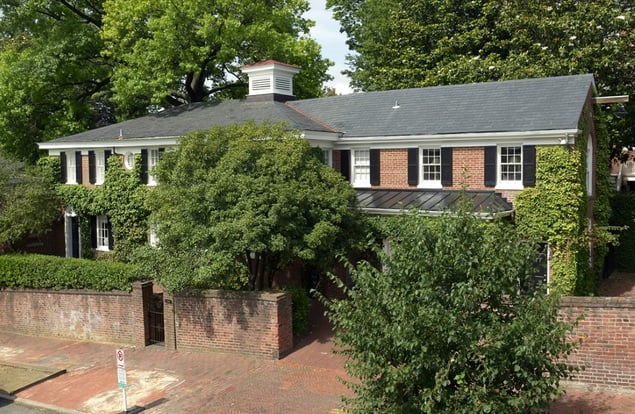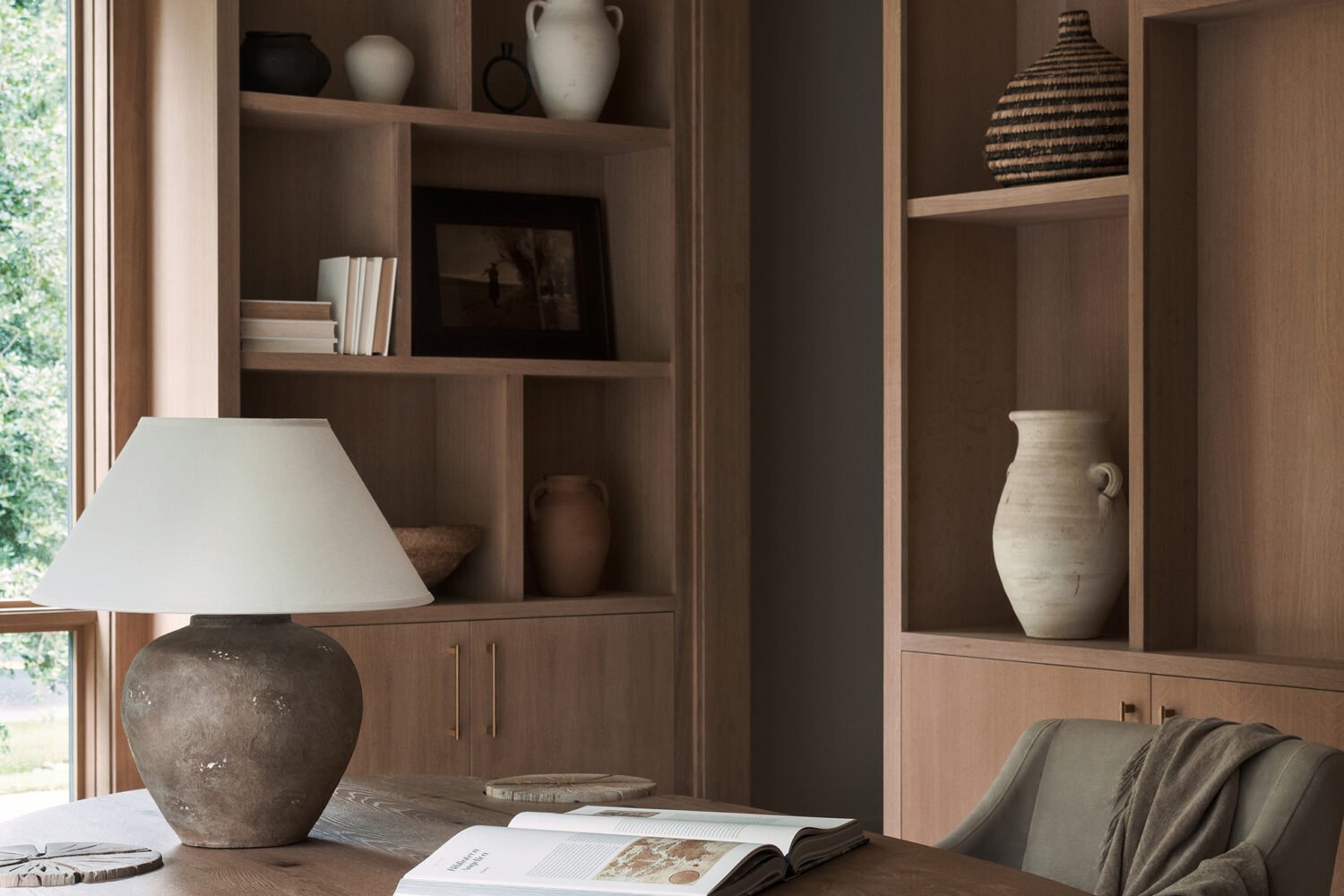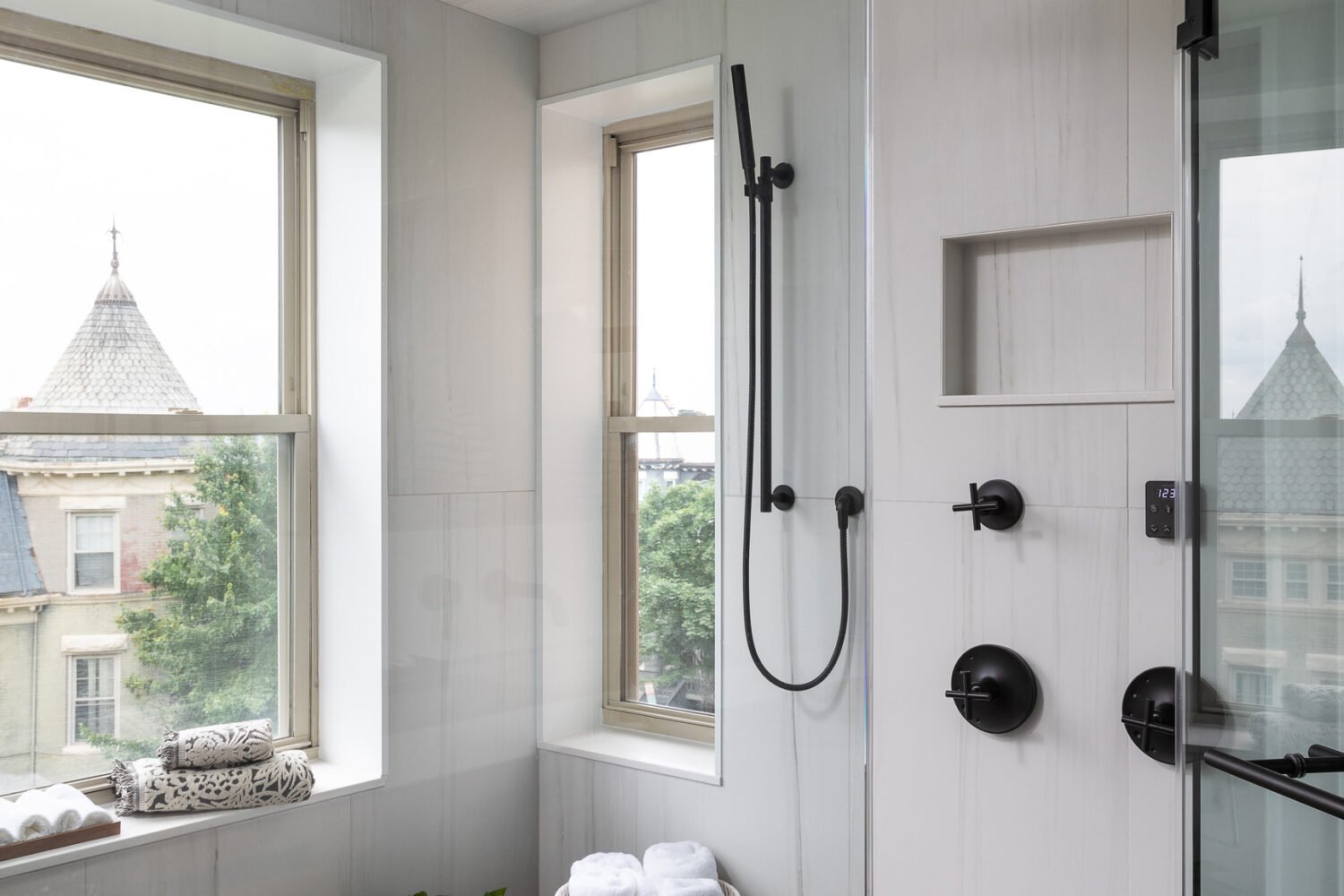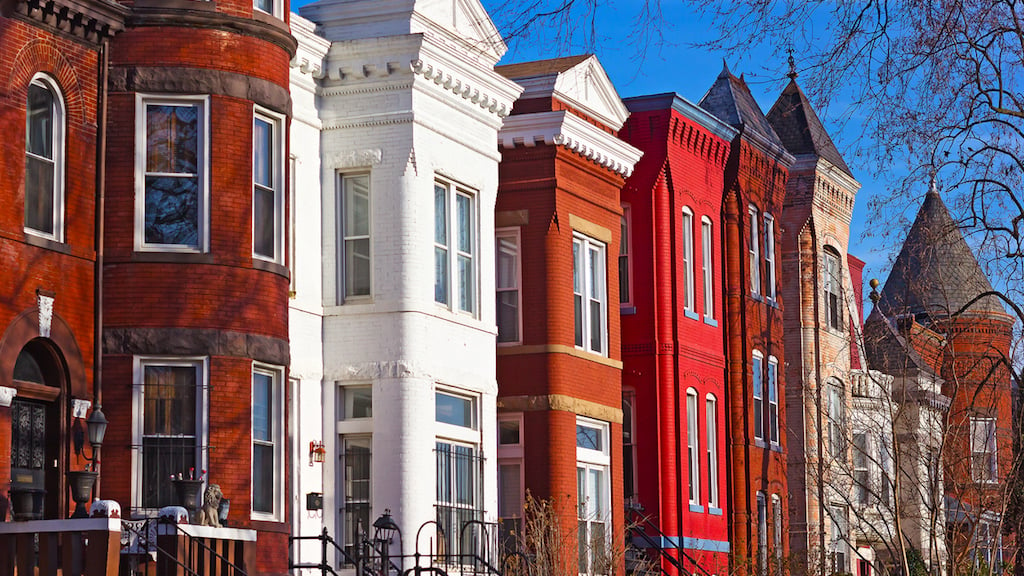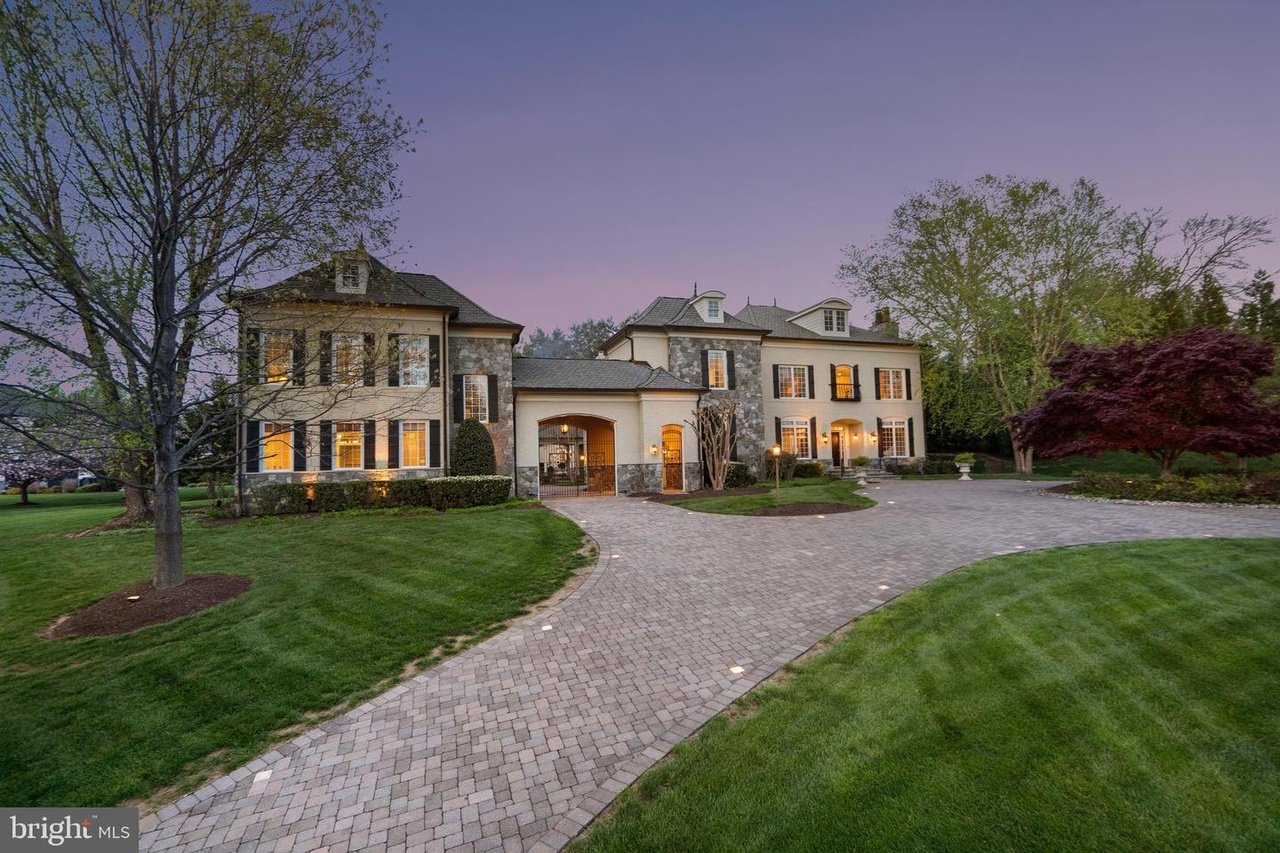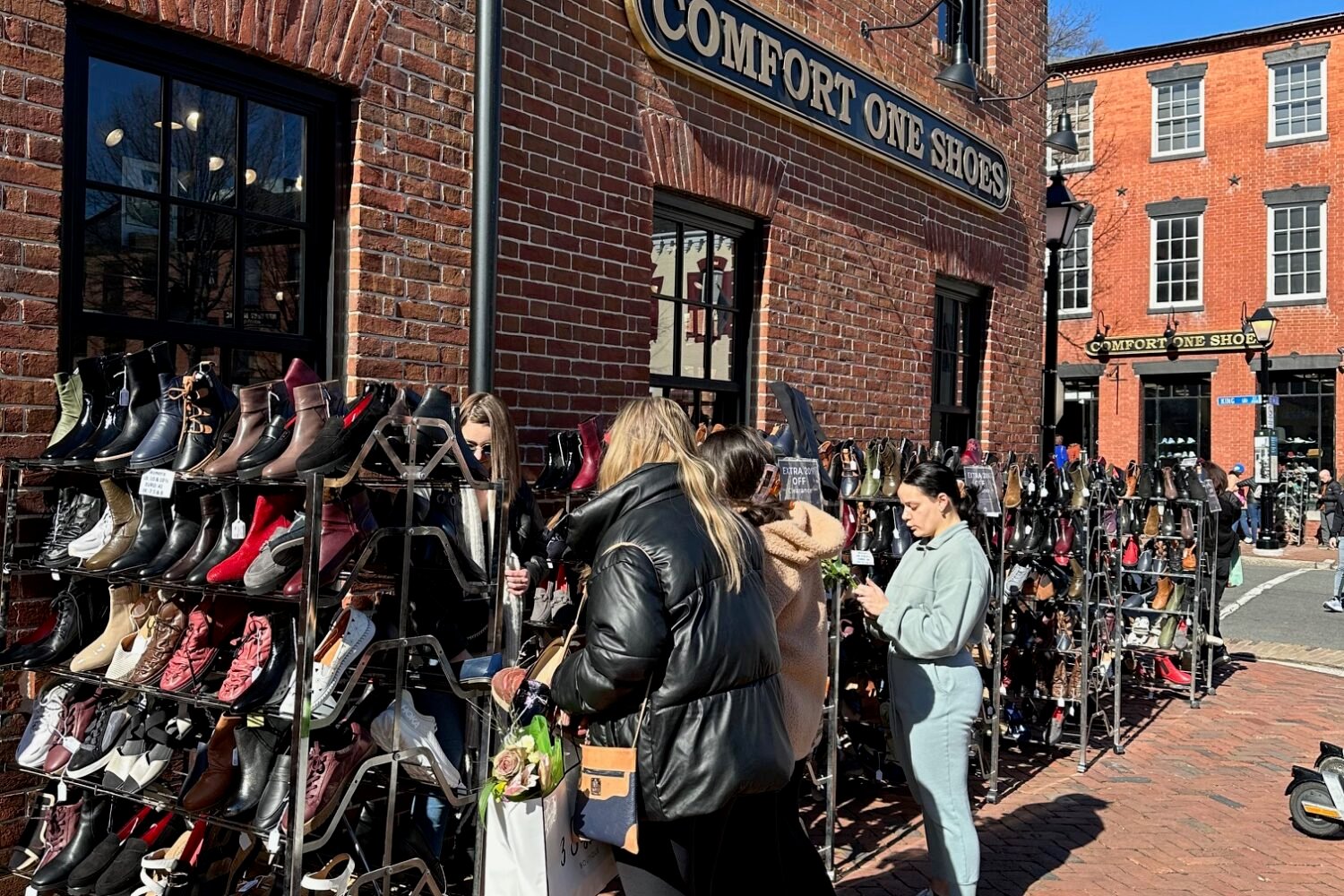The Laird-Dunlop Coach House is abuzz with people finalizing its listing with Washington Fine Properties. Listing agent
Eileen McGrath is on her laptop in the kitchen, interior designer
Kelley Proxmire is putting the finishing touches on her staging job, and photographer
Angie Seckinger has just arrived to document
it all. We’re here for a tour with McGrath, and as we wait for her to
complete paperwork our
eyes drift to the ballroom. We begin to fantasize about the
parties we might like to throw in the room, with its 14-foot ceiling
and Palladian-inspired French doors opening onto a lush and
secluded garden and views across the river to Virginia.


The house was built in 1799 by wealthy tobacco
warehouse owner John Laird. The list of owners since reads like a page
from
an American history textbook: James Dunlop, law partner of
Francis Scott Key and chief justice of the DC Circuit Court, moved
into the house in 1873. In 1915, Robert Todd Lincoln (Abe’s
eldest son) purchased the property. In 1936 he sold it to Mrs.
Helen Burgess, the granddaughter of J.P. Morgan, who had the
good sense to add the ballroom and to retain a large portion
of the garden when she separated the coach house from its
original property (the larger Laird-Dunlop House sits above the
coach house, on N Street). In 1984, Arnold Sagalyn—one of Eliot
Ness’s “Untouchables”—moved in. The current owner, a venture
capitalist, purchased the house in 2004 and is responsible for
the thoughtful and impressive renovation we see today.
“In a city that’s so transient, it’s remarkable that
we can trace the history of this house back to its inception more than
200 years ago,” says McGrath. “And the fact that it’s only had
five owners since indicates that once people got here, they
didn’t want to leave.”

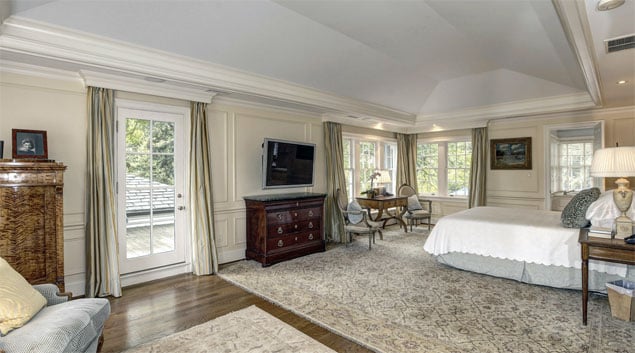
Upstairs, McGrath walks us through the home’s four
bedrooms. The master suite is surrounded by windows that look out over
the treetops and into the garden. The master bath has heated
floors, a steam shower, and a big soaking tub with the same garden
views. Standing in what is now a charming guest room, McGrath
says, “You won’t believe this, but back in the day this space
was actually a hay loft.” For proof, she points out the window
to a pulley that was once used to hoist stacks of hay.
Back downstairs, a large panel painting on the far
ballroom wall bears an uncanny resemblance to the old Georgetown
harbor—a
smart nod to the village’s history. Throwing open the doors to
the garden, McGrath shows us the boundary stone that once marked
the northeast corner of “original George Town, founded 1751.”
It’s the last remaining of the four such stones. She points
out the poolside cabana, which was once part of a smokehouse
when the property housed livestock (we’d have been more surprised
by this fact if we hadn’t already seen the hay pulley). And
really, we wouldn’t mind grazing out here ourselves, what with
the heated lap pool, the cozy spa, and the cobbled terracing
placed among antique boxwoods, trickling fountains, and tall
trees.
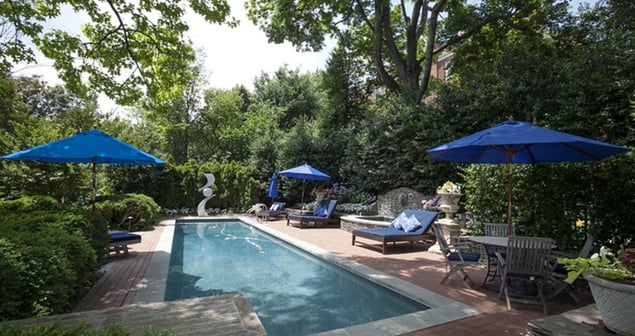
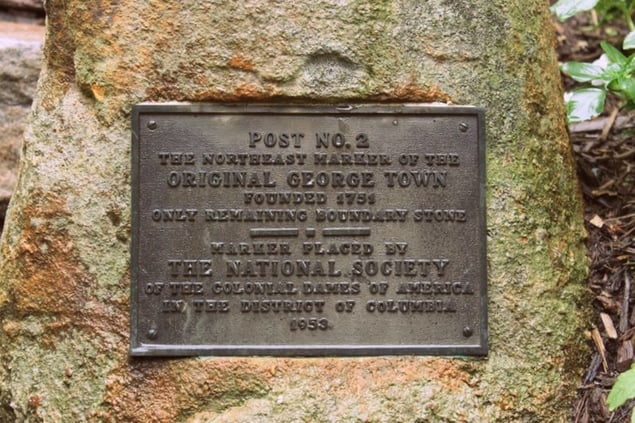
“The property is extraordinary,” says McGrath. “We have struggled to find anything else that offers so much from a historical
perspective, as well as so beautifully accommodating today’s lifestyles.”
For more information on the Laird-Dunlop Coach House,
view the virtual tour,
or contact listing agents Eileen McGrath and Jamie Peva
of Washington Fine Properties. The house is listed for $8.995
million, and is shown by appointment only.

